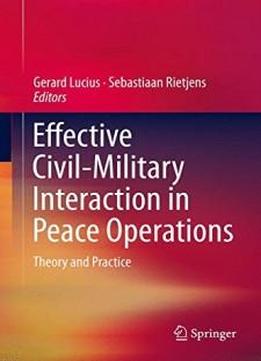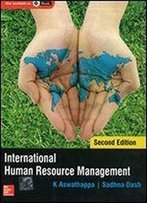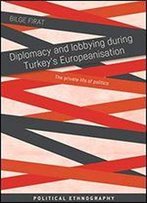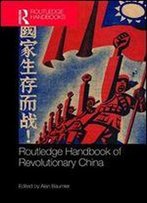
Effective Civil-military Interaction In Peace Operations: Theory And Practice
by Sebastiaan Rietjens /
2016 / English / PDF
5.1 MB Download
This book contains unique, firsthand experiences of both the
military and civilian actors involved in civil-military interaction
processes. It presents lessons learned from a variety of
situations, from both NATO-led operations and UN Integrated
Missions, and in different geographical areas, such as the Balkans,
Iraq, Afghanistan and Africa. Rather than taking the
improvisational approach, these lessons learned will enable
military commanders and staff and their civilian counterparts in
governments, International Organisations and NGOs to come fully
prepared for the challenges of today's multifaceted missions. With
a better understanding of the mandates and methods of the various
civilian and military actors comes greater respect for each other's
comparative advantages. With respect comes smoother cooperation.
And with that, efficiency gains and enhanced overall mission
effectiveness. Each chapter contains solid analysis and advice,
specific to the functions found in military organizations, from
Intelligence to Personnel and from Logistics to Engineering.
Cross-cutting themes like Gender, Human Rights and Corruption are
also included in this work that brings together some of the best
that practitioners and academics can offer.
This book contains unique, firsthand experiences of both the
military and civilian actors involved in civil-military interaction
processes. It presents lessons learned from a variety of
situations, from both NATO-led operations and UN Integrated
Missions, and in different geographical areas, such as the Balkans,
Iraq, Afghanistan and Africa. Rather than taking the
improvisational approach, these lessons learned will enable
military commanders and staff and their civilian counterparts in
governments, International Organisations and NGOs to come fully
prepared for the challenges of today's multifaceted missions. With
a better understanding of the mandates and methods of the various
civilian and military actors comes greater respect for each other's
comparative advantages. With respect comes smoother cooperation.
And with that, efficiency gains and enhanced overall mission
effectiveness. Each chapter contains solid analysis and advice,
specific to the functions found in military organizations, from
Intelligence to Personnel and from Logistics to Engineering.
Cross-cutting themes like Gender, Human Rights and Corruption are
also included in this work that brings together some of the best
that practitioners and academics can offer.











